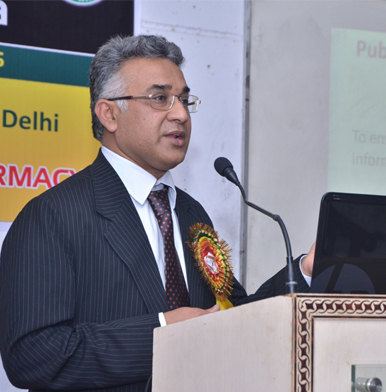In the history of Greek medicine, Aesclepius was the first physician who introduced the art of medicine from Egypt into Greek about one thousand year BC. Asclepius had two sons, both physicians. From Aesclepius and his sons, medicine passed into the hands of the priests where it remained dormant for the several centuries. Pythagoras (600 B.C.), though was the first to call himself a philosopher and established a school in Crotona, but it was Hippocrates (460B.C.) who as a first physician of Greek medicine separated medicine from religion believing all diseases were due to natural causes. He studied his clinical cases and carefully recorded all natural happenings. After the death of Hippocrates, medicine came to a standstill. His sons Draco and Thessalus, and his son-in-law Polybus formed a society called ‘Dogmatic’ and founded a school of medicine with the same name.
Hippocratic medicine passed from Greece to the Islamic worlds through the Nestorian Greeks. During the period of Arabic enlightenment, Arab scholars like Rhazes (855-925A.D.), Avicenna (980-1037A.D.), Avenzoar (1090-1162A.D.) and others not only translated the medical books of Greek physicians like Hippocrates, Galen, Dioscorides, etc. but through their own original writings developed the Greek medicine throughout the Muslim world. This system is known, in different names such as Greek medicine, Greco- Arab medicine, Islamic medicine but generally it is called Unani Medicine. In Arabic, Unani means Greece.
In India, this system of medicine was introduced by the Arab and Iranian physicians, and soon became the indigenous system of this country. Greek medicine is a practising system of medicine in the Indian subcontinent (India, Pakistan Bangladesh) and also in Srilanka, Iran, South Africa and other parts of the world. In India, there are more than fifty thousand practitioners of this system. Under the patronage of Govt. of India, around 40 undergraduate colleges and ten postgraduates department are functioning in different parts of the country. They offer five years degree course and three years postgraduate course in different subjects. This system of medicine is very popular among the masses. The practitioners of Unani medicine scattered all over the country, form an important part of the natural and primary health care delivery structure. The total number of hospitals functioning in different states of the country is 80; most of them are run by Central Council of Indian Medicine (CCIM) under the Ministry of AYUSH, Govt. of India. The total number of Unani dispensaries is more than 1150. There are 450 Unani pharmaceutical laboratories for the preparation of compound medicine. In the Unani system of medicine, various types of treatment are employed, such as regimental therapy, diet therapy, pharmacotherapy etc. The regimental therapy (Ilaj Bit-tadbeer) includes venesection, cupping, diaphoresis, diuresis, Turkish bath, massage, metastasis, cauterization, purging, emesis, exercise, leeching, etc. Six essential factors were considered responsible for the maintenance or bringing about changes in the states of the body. These essential factors which influence the body throughout the life are six in number: Ambient air, Food and drink, Sleep and wakefulness, Excretion and retention, Rest and activity of body and Psychological activity.

Dr Syed Ziaur Rahman is a professor in the Department of Pharmacology, Jawaharlal Nehru Medical College & hospital. He is the deputy medical superintendent of JNMCH, AMU, Aligarh. Dr Zia is also the Treasurer of Ibn Sînâ Academy of Medieval Medicine & Sciences, Aligarh, UP India